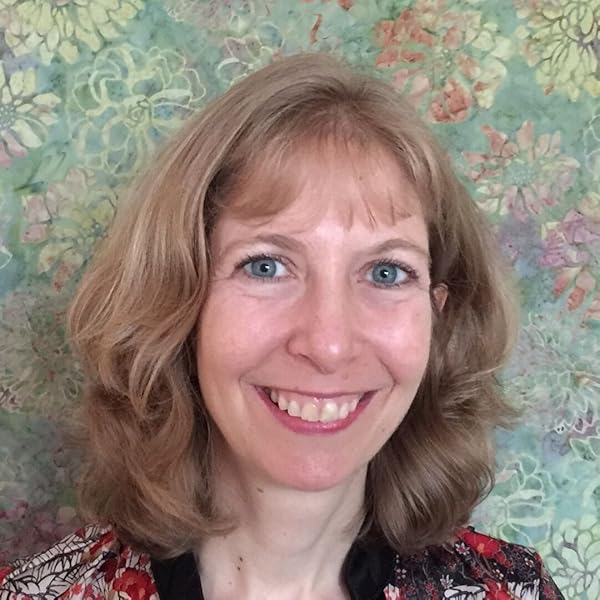Resilience and Healing
Posted by Literary_Titan

The Unbroken Horizon follows the lives of two people, a white humanitarian nurse in 2011, and a 14-year-old Black girl in 1914 whose lives are interwoven. What was the inspiration for the setup of your story?
The birth of The Unbroken Horizon came in 2011, during a healing workshop. Suddenly, I had the sense of being in a forest. I saw flashes of white hoods and torches. I felt dizzy and nauseated. The images and feelings followed me for days until I finally sat down at my computer and started writing what ended up being the broad outline of Maggie’s life. A few weeks later, I had the idea of a humanitarian nurse, Sarah, who had a similar vision as I had, but in a recurrent nightmare that caused her to make a near-fatal mistake, and subsequently launched her on a healing journey. I had done international humanitarian work for a decade (mostly in Asia and the Middle East) and my sister had worked for fifteen years with Doctors Without Borders (mostly in African countries) so I combined both our experiences for the setup. Sarah’s path to healing was inspired by my own and that of my clients, as I am now a holistic healer focusing on anxiety and trauma—including that which is inter-generational.
What kind of research did you do for this novel to ensure you captured the essence of the story’s theme?
After getting the initial sense of Maggie’s life through automatic writing, extensive research into that era (1914-1927)—both general and also focused on Black history—helped flesh out the details. Learning about the 1918 Dyer anti-lynching bill (which never became law due to filibusters in the Senate) helped contextualize the story in time. Jim Crow Laws, the Great Migration, World War I (and the promises made and broken to Black soldiers), the Spanish Influenza and the Red Summer form the backdrop to Maggie’s lived experiences in the first five years covered in the novel. Some of the details I included (such as the messages on placards at an NAACAP silent march, or the rain bringing an end to four days of violence during the Washington DC Red Summer events in July 1919) were informed by thorough research from books, internet searches and news clippings. Reading Ida B. Wells and Mary Church Terrell’s autobiographies helped give me a sense of Black women activists’ experiences around that time.
However, it was also clear to me that Maggie was a poet at heart and would want to go to college to explore that passion. Archival images of Howard University’s 1920 yearbook gave me a sense of the students, the campus, and the professors at that time. I was sure Maggie and Alain Locke would have gotten along famously, so I did a deep dive into his life to understand him better as a person. I read numerous books of both poetry and prose written by Harlem Renaissance writers featured in his The New Negro anthology (which, in my novel, Maggie helps with) to imbibe the voice and lyricism of that time period.
My research for Sarah’s story (the parts not inspired by my own experiences) was more informal. I pored over my sister’s photos and stories of South Sudan, and talked to various friends about their experiences as: a therapist doing EMDR, a baby cuddler at a neonatal Intensive Care Unit, a study abroad student in Tanzania, a volunteer with CORE (Congress of Racial Equality) in the 1960s, to bring some of Sarah’s scenes to life.
What are some things that you find interesting about the human condition that you think make for great fiction?
As a healer/poet/writer, I’m fascinated by trauma, mental health struggles, and the capacity for resilience and healing. I love combining the stark realities of being human with magical realism, hope, and realms/guidance that transcend the limitations of our cognitive brains.
What is the next book that you are working on, and when will it be published?
Honestly, since I poured so much of myself into The Unbroken Horizon and it took be about a decade to finish (the writing, rewrites, and publishing), I feel like I need a little break from novel-writing. However, I am hoping to publish a nonfiction book about body-based ways of healing from anxiety and/or a book of poetry in the next year or two.
Author Links: GoodReads | Twitter | Website
2011: Sarah Baum is a white humanitarian nurse who’s worked in conflict zones for years. When recurrent nightmares of being a scared Black girl hiding in the forest cause her to make a near-fatal mistake, she’s faced with her biggest challenge yet: how to heal from her past. And who is the girl in her dreams?
1914: Fourteen-year-old Maggie Burke flees the land where her family works as sharecroppers after witnessing the lynching of her brother and father. She eventually finds her way to New York and later Washington, DC, where her personal demons finally catch up with her. Will she have to give up everything she thought she wanted to follow the wild, poetic voice wishing to emerge through her?
Alternating between Sarah’s deep dive into her childhood and ancestral wounds, and Maggie’s journey from survival to forging her own path, The Unbroken Horizon explores the ways humans survive, heal, and even thrive in the face of individual and collective trauma.
Posted on August 21, 2023, in Interviews and tagged author, book, book recommendations, book review, book reviews, book shelf, bookblogger, books, books to read, contemporary fiction, ebook, goodreads, historical fiction, indie author, Jenny Brav, kindle, kobo, literary fiction, literature, nook, novel, poetry, read, reader, reading, social commentary, story, The Unbroken Horizon, womens fiction, writer, writing. Bookmark the permalink. 1 Comment.
Comment Cancel reply
This site uses Akismet to reduce spam. Learn how your comment data is processed.



Pingback: Resilience and Healing – GREENE PUBLISHING